Femia > Health Library > Getting Pregnant > Challenges > How soon after unprotected sex can I test for pregnancy?
How soon after unprotected sex can I test for pregnancy?
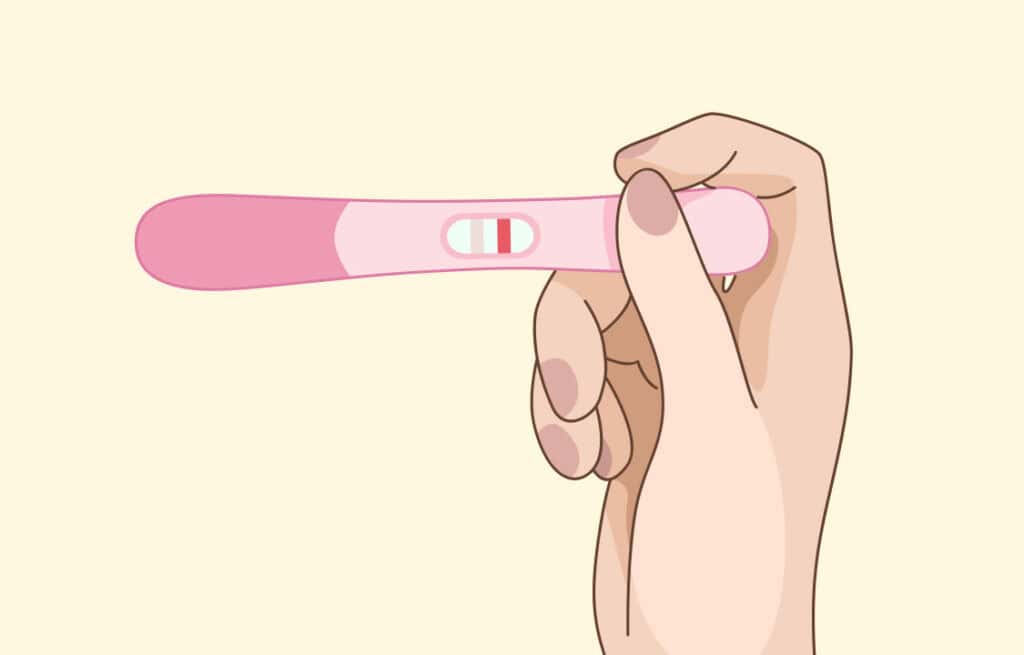
- Updated Feb 10, 2025
- Published
CRAFTED BY HUMAN
Crafted by human At Femia, we provide accurate and up-to-date information at every stage of your journey, from trying to conceive, pregnancy and postnatal support. All content is created by a real person based on in-depth research and own professional experience. Femia ensures that you will receive expert advice, strict accuracy and a personalized approach from our authors/medical experts. Learn more about our editorial policy.
FACT CHECKED
Fact checked At Femia Health, we maintain the highest standards of editorial excellence in delivering content focused on helping you conceive, guiding you through pregnancy, and supporting you postpartum. Explore our content review principles to learn how we ensure the accuracy and quality of our health and lifestyle tips for every stage of your journey.
Two weeks after unprotected sex is the ideal time to test for pregnancy. The earliest way to confirm pregnancy is with a blood test, but these are usually only performed in special circumstances. Most likely, you’ll be using an at-home urine pregnancy test. While a home test can provide accurate results as early as five days before you miss a period, most recommend waiting until after you know your period is late.
Having unprotected sex always carries the chance of getting pregnant, and you might be wondering how soon after sex you can take a pregnancy test.
Two types of pregnancy tests exist: blood tests and urine tests. Most women use an at-home urine test to see if they’re pregnant. The outcome is pretty straightforward—a positive result means you’re pregnant, and a negative result means you’re not pregnant.
👉Find out more: Watery period blood: A sign of pregnancy or health issue?
Pregnancy tests overview
Urine pregnancy tests can be purchased over the counter (without a prescription) from pharmacies and supermarkets or can be done by your healthcare provider. They’re cheap, accurate, easy to use, and offer a result within minutes.
Blood tests can also be performed. These are more sensitive, as they can measure the exact level of pregnancy hormone in your body and give a positive result as early as seven days after conception. However, they are more expensive, time-consuming, invasive, and can only be done in a healthcare setting. Blood tests to see if you’re pregnant are usually only done in special circumstances, such as for women who are undergoing fertility treatment.
How early you can detect a pregnancy depends on your body and how sensitive the test is. Most at–home pregnancy tests recommend waiting until after your period is late, but some women can get a positive result up to five days before they have missed one.
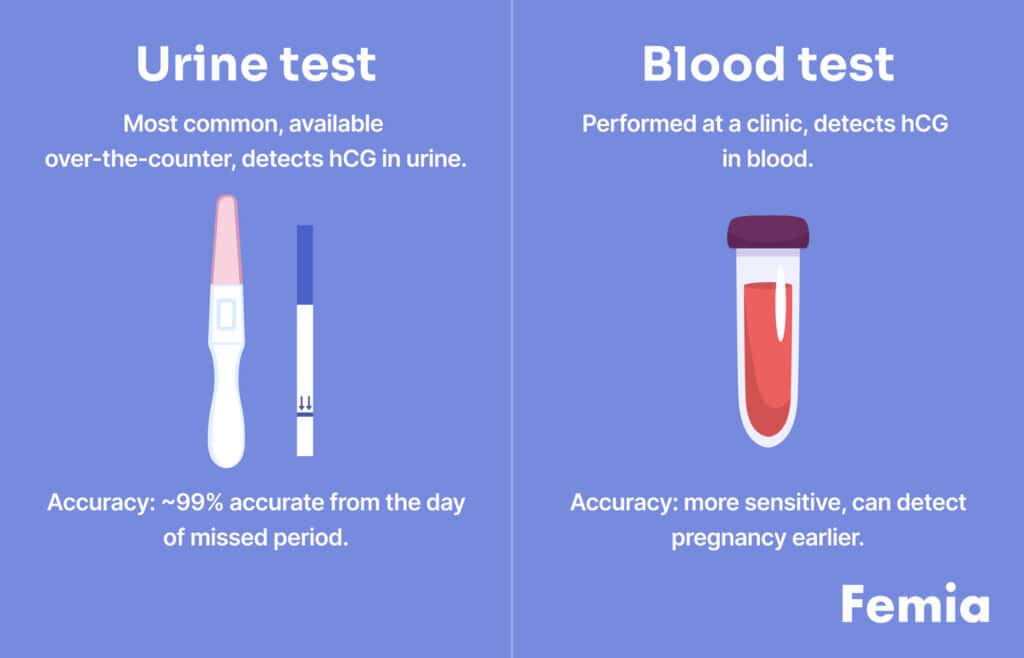
How does HCG impact pregnancy test results?
Pregnancy tests work by testing for the hormone human chorionic gonadotropin (HCG).
During ovulation, your ovaries release an egg, which can then be fertilized by a sperm cell. After it is fertilized, it will attach itself to the wall of the uterus—this is called “implantation.” Once implantation has occurred, HCG starts to be secreted.
HCG levels double approximately every 48-72 hours in the first weeks of pregnancy, making it a convenient marker for early pregnancy detection. When HCG levels reach a certain threshold, it becomes detectable in your blood and urine.
Femia offers the most accurate tool for determining fertile days
@femia.fertility Sperm is really fast, but it still requires time to reach the egg and fertilize it. Even after fertilization, pregnancy does not occur immediately because the implantation has to take place first. Therefore, it is essential to wait until you miss your period before taking a pregnancy test ❤️#ttchumor #ttc #memecut #meme #implantation #pregnancytest #babydance #ttcjourney #ttccommunity #ttcmeme ♬ original sound - Femia fertility tracker
When should you take a pregnancy test after unprotected sex?
How early you can get a positive result will depend on the day you ovulated, how long implantation took and how sensitive the test is. Here’s the timeline:
Studies have found that implantation occurs, on average, 8–10 days after ovulation—although it can occur as early as six. It then takes around three to four days after implantation for HCG levels in the urine to reach 25mIU/ml and be detectable by a pregnancy test.
Most women will get an accurate test result if they test the day after they miss a period. However, in around 10% of women, implantation doesn’t occur until after the first day of the next expected period. This means that no matter how sensitive the test is, some women won’t get a positive test until a few days after they have missed a period.
👉Find out more: I had sex and then got my period – can I still be pregnant?
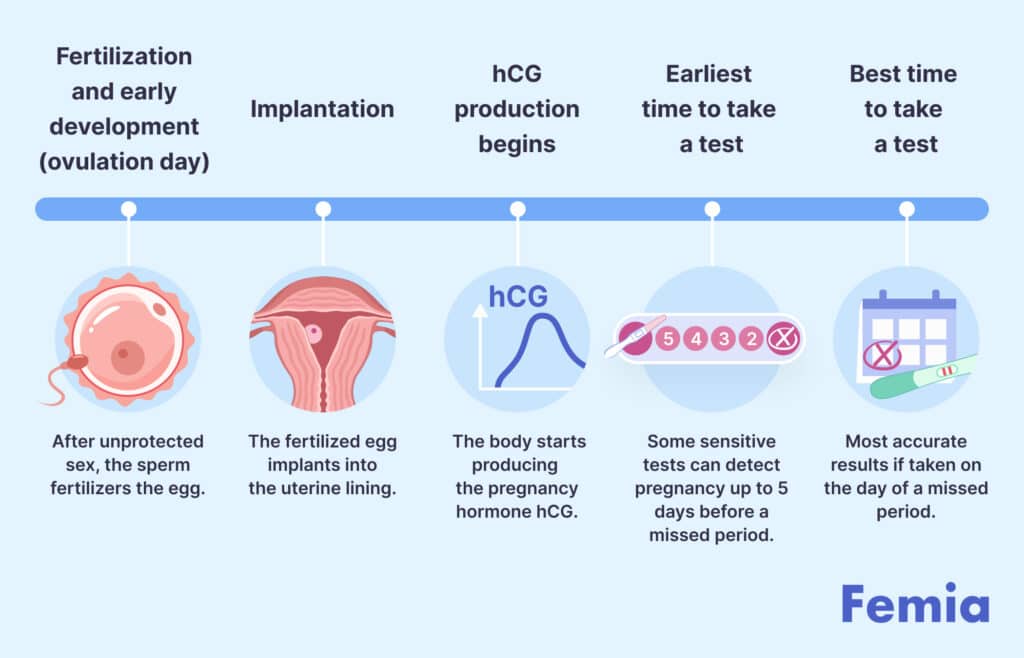
The earliest pregnancy symptoms
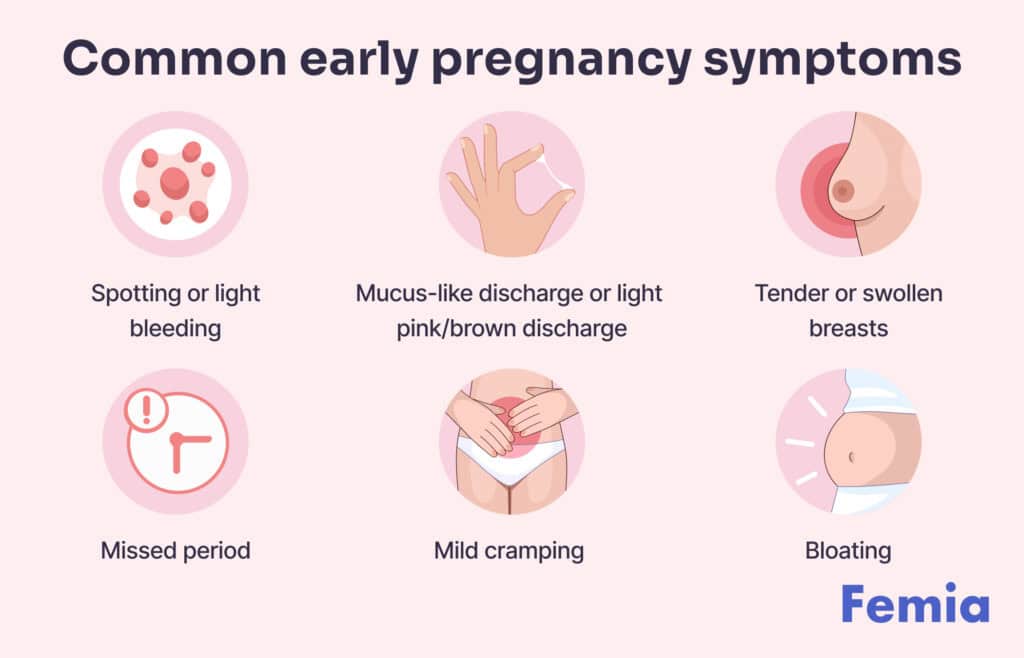
Missed period
Often the first noticeable sign of pregnancy.Fatigue
Feeling unusually tired or experiencing lower energy levels.Nausea and morning sickness
Queasiness, which can occur any time of the day, not just in the morning.Breast tenderness
Breasts may feel sore, sensitive, or heavier than usual.Frequent urination
The need to urinate more frequently than usual.Mood swings
Fluctuations in mood due to hormonal changes.Bloating
The feeling of fullness or bloating in the abdominal area.Mild cramping
Light cramps, similar to menstrual cramps, may occur in early pregnancy.Food aversions or cravings
Sensitivity to certain smells or cravings for specific foods.Headaches
Hormonal changes can sometimes trigger headaches in early pregnancy.Dizziness or lightheadedness
Some may feel lightheaded due to blood vessel dilation or low blood sugar.Spotting (Implantation Bbleeding)
Light bleeding or spotting may happen when the fertilized egg attaches to the uterine lining.
Each symptom provides subtle signs that can signal pregnancy in the early stages, but they may vary in intensity and occurrence for each individual.
What is the best time to take a pregnancy test?
Before taking a pregnancy test, you should always read the instructions first and follow them carefully.
Most tests recommend that you test with pee from your first morning’s urination, because it is the most concentrated and easier for a test to detect HCG if it’s present.
However, if you are testing during the day or evening, try not to urinate for a few hours before the test and avoid drinking too much fluid to ensure sufficient HCG concentration.
👉Find out more: How long after implantation bleeding can I test for pregnancy?
You can take a test at night, or any time of the day, but it might not be as accurate.
Your urine is most concentrated first thing in the morning. Taking a test at night, when your urine is more watery, may mean that it can’t detect any HCG, and you can get a negative result even if you’re pregnant.
How accurate are pregnancy tests?
Most pregnancy test manufacturers claim an accuracy rate of 99% from the first day of a missed period. However, studies indicate that this level of accuracy can vary, and there are several factors that can impact the reliability of test results.
Positive vs. Negative Results
- Positive Result: A positive pregnancy test is usually a strong indicator that you are pregnant.
- Negative Result: If the result is negative, it doesn’t necessarily mean you’re not pregnant; you may have tested too early. If your period does not arrive, it’s recommended to test again in a couple of days.
Factors Affecting Pregnancy Test Accuracy
Timing of the Test
Testing too early can lead to false negatives because hCG levels (the hormone detected by pregnancy tests) may not be high enough yet.Sensitivity of the Test
Different pregnancy tests have varying sensitivity levels to hCG, meaning some may detect pregnancy earlier than others.Concentration of Urine
Testing with concentrated urine (such as first thing in the morning) can improve accuracy, as hCG levels are more detectable.Following Instructions Properly
Incorrect usage, such as not waiting the specified amount of time before reading results, can impact accuracy.Medications
Certain medications, particularly those that contain hCG, can affect the test outcome.
False positives
A false positive test is when the pregnancy test is positive but you’re not actually pregnant. Sometimes women going through perimenopause, menopause, or those using certain fertility drugs have a small amount of HCG present in their body that can be picked up by highly sensitive pregnancy tests.
Occasionally, you may also have a faulty test. If you have any concerns about the result, then you should test again to double check.
There are a few other, very rare, diseases that can cause your body to produce HCG even when you’re not pregnant and result in a false positive pregnancy test, such as ovarian neoplasms. False positive results can also occur due to the presence of HCG related to tumors or recent miscarriage or abortion.
👉Find out more: Can you get pregnant when you’re not ovulating?
False negatives
A false negative is when the test is negative, but you are actually pregnant. These are much more common and can happen for several reasons:
- Delayed ovulation and implantation;
- Testing too early due to inaccurately predicting when the next period is due;
- Pregnancy test not as sensitive as suggested;
- Diluted urine resulting in a lower concentration of HCG in urine.
User error in taking the test or reading the result (misinterpreting a positive result as being negative)
Femia offers the most accurate tool for determining fertile days
When should you see a doctor about a possible pregnancy?
You should contact your healthcare provider as soon as you get a positive pregnancy test to discuss the next steps.
If you want to progress with the pregnancy, then you can start reading up about what you should and shouldn’t do in pregnancy and start taking antenatal vitamins if you don’t already.
If you have had a negative pregnancy test but think you could still be pregnant, or your period has not arrived, contact your healthcare provider. They may arrange further tests.
Questions from the Femia community
How accurate are home pregnancy tests compared to blood tests?
Blood tests are slightly more sensitive than urine tests, so they are useful if you urgently need to know if you’re pregnant. They also give exact HCG levels, which might be needed to track progression. However, for the majority of women, an at-home pregnancy test is good enough to confirm pregnancy.
Can stress delay my period and affect pregnancy test results?
Your period can be delayed for a number of reasons, including stress. Studies have shown that stress can cause you to ovulate later than expected and delay your next period. If ovulation is delayed, you may not get a positive result until several days after you have missed your period, because HCG levels will still be too low to be detected.
How soon after unprotected sex can I experience pregnancy symptoms?
Early pregnancy symptoms vary widely from pregnancy to pregnancy. For most women, the earliest sign is a missed period. Some women may experience other symptoms around the time they miss their period, such as feeling sick, sore breasts, or being more tired than usual.
Will a pregnancy test be positive immediately after sex?
No, you will not be able to get a positive pregnancy test until several days after having unprotected sex, as it takes time for implantation to occur and for HCG levels to rise.
The bottom line
Most women will get an accurate test result if they take a pregnancy test on the day they have missed their period.
For those who find it difficult to wait that long, it is possible to get a positive result up to five days before missing your period using a highly sensitive test. However, if you take a test early and it is negative, it doesn’t necessarily mean you’re not pregnant. If your period does not arrive, then repeat the test after a couple of days to be sure.
References
American Pregnancy Association. “Pregnancy Tests | American Pregnancy Association.” American Pregnancy Association, 14 June 2024, www.americanpregnancy.org/healthy-pregnancy/are-you-pregnant/pregnancy-tests.
Cole, Laurence A., et al. “Sensitivity of Over-the-Counter Pregnancy Tests: Comparison of Utility and Marketing Messages.” Journal of the American Pharmacists Association, vol. 45, no. 5, Sept. 2005, pp. 608–15. https://doi.org/10.1331/1544345055001391.
- Gnoth, C., and S. Johnson. “Strips of Hope: Accuracy of Home Pregnancy Tests and New Developments.” Thieme-Praxis-Report. Geburtshilfe Und Frauenheilkunde/Geburtshilfe Und Frauenheilkunde, vol. 74, no. 07, Aug. 2014, pp. 661–69. https://doi.org/10.1055/s-0034-1368589.
- Grenache, David G. “Variable Accuracy of Home Pregnancy Tests: Truth in Advertising?” Clinical Chemistry and Laboratory Medicine, vol. 53, no. 3, Jan. 2015, https://doi.org/10.1515/cclm-2014-1033.
- Kennedy, Caitlin E., et al. “Self-testing for Pregnancy: A Systematic Review and Meta-analysis.” BMJ Open, vol. 12, no. 2, Feb. 2022, p. e054120. https://doi.org/10.1136/bmjopen-2021-054120.
“Missed or Late Periods.” nhs.uk, 11 Mar. 2024, www.nhs.uk/conditions/missed-or-late-periods.
- Pregnancy Test: MedlinePlus Medical Test. June 2024 https://medlineplus.gov/lab-tests/pregnancy-test/.
- “Signs and Symptoms of Pregnancy.” nhs.uk, 18 May 2023, www.nhs.uk/pregnancy/trying-for-a-baby/signs-and-symptoms-of-pregnancy.
- Vigil, Pilar, et al. “Chronic Stress and Ovulatory Dysfunction: Implications in Times of COVID-19.” Frontiers in Global Women’s Health, vol. 3, May 2022, https://doi.org/10.3389/fgwh.2022.866104.
Wilcox, Allen J. “Natural Limits of Pregnancy Testing in Relation to the Expected Menstrual Period.” JAMA, vol. 286, no. 14, Oct. 2001, p. 1759. https://doi.org/10.1001/jama.286.14.1759.
- Wilcox, Allen J. “Time of Implantation of the Conceptus and Loss of Pregnancy.” New England Journal of Medicine, vol. 340, no. 23, June 1999, pp. 1796–99. https://doi.org/10.1056/nejm199906103402304.
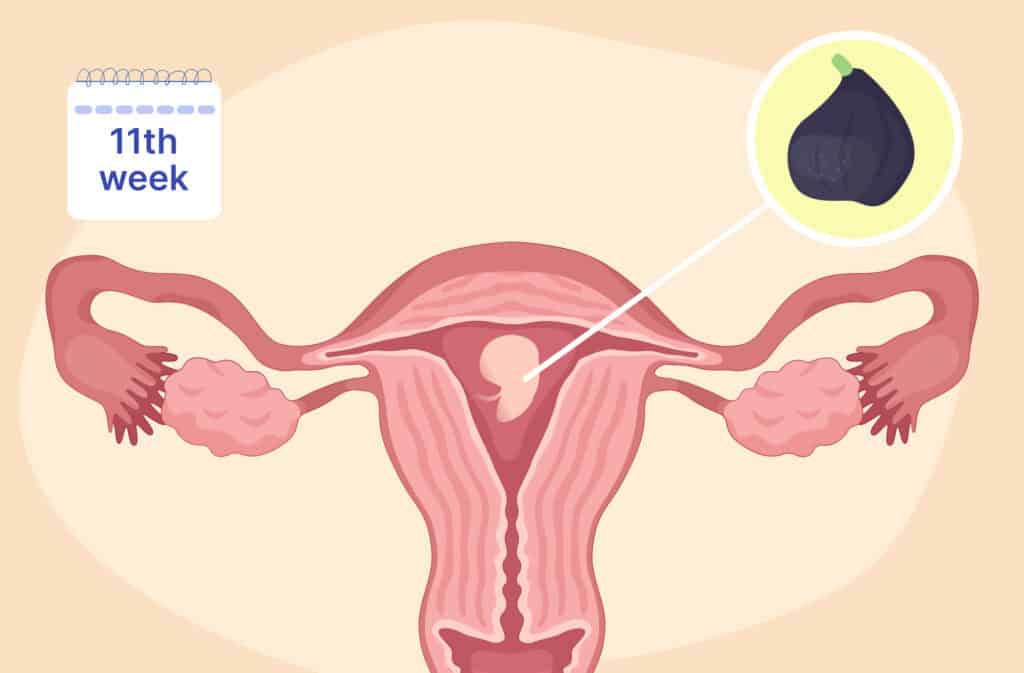
Learn what’s happening at 11 weeks pregnant, from baby’s growth to your changing body. Explore tips for managing symptoms and supporting fetal development.
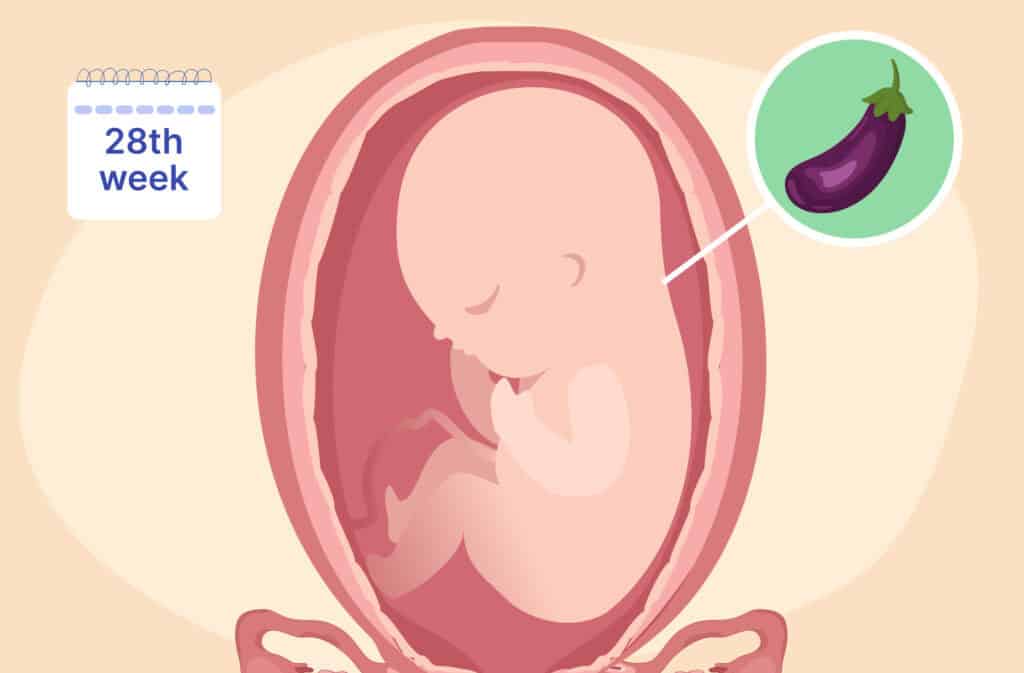
At 28 weeks pregnant, you’re entering the third trimester. Learn about baby size, symptoms, ultrasound, and health tips for a smooth journey.

Learn how to get short-term disability approved while pregnant, including tips for consulting with your doctor, gathering necessary documentation, and filing a claim.

